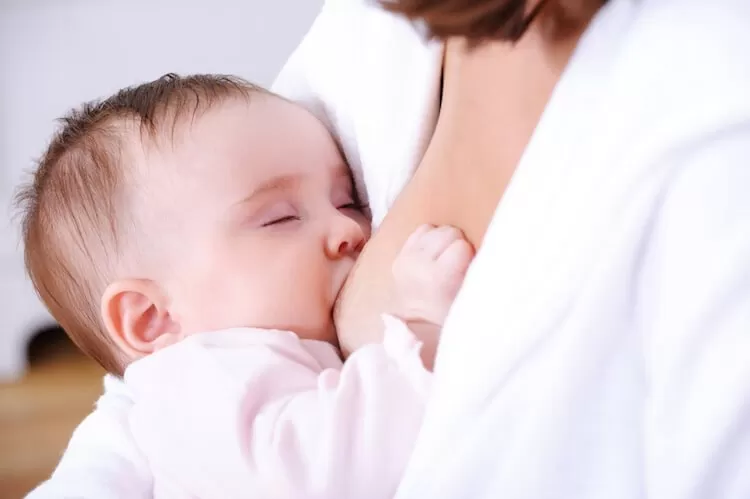After sharing what happened when Pixie was born, I’m now going to talk about what happened when we arrived home, specifically in regards to the fact that we quickly noticed our jittery newborn was very lethargic and resisting waking to nurse.
I want to reiterate the importance of our mothering instincts when it comes to those early days after birth.
As I mentioned in my recent post about the dangers of dehydration in newborns, I refused to allow the nurses to bottle feed Pixie in hospital, and this was because I was determined to successfully feed her myself. But whatever your stance on combination feeding, it’s important to be educated so you can make an informed decision.
Incidentally, I now know that though I was right not to introduce bottles at that very early point, it often doesn’t cause a problem to combination feed once baby has established their latch and you’ve been successfully feeding for around 6 weeks or so, should you wish to do so. However, I do recommend support and an understanding of paced feeding.

Breastfeeding and Dehydration – How Concerned Should You Be?
Which brings me onto the point of this post… I read something not so long ago which caused me great concern, and I’ve wanted to address it for a while. The story I read was about the tragic case of a baby boy who sadly lost his life following what appeared to be successful breastfeeding. However, in reality his mother was not producing sufficient milk to adequately feed him and he ultimately died of dehydration.
After what happened with Pixie I feel somewhat qualified to open this discussion up. I by no means claim to be an expert, neither do I pretend to be medically trained. But I have lived it and gone on to successfully breastfeed for more than a year, and my experience means I have a good understanding.
The story doing the rounds has been slammed for being irresponsible – and I’m inclined to agree.
Why Making Breastfeeding the Problem Is Irresponsible and Harmful
Essentially, there’s been a degree of scaremongering attached to breastfeeding, ostensibly because it’s impossible to measure how much milk your baby is actually taking in. But it’s necessary to note that this is probably just about the only story you’re likely to encounter of such a situation, and there’s a very good reason for that: 95% of women will produce an adequate supply of milk if their baby is allowed to feed on demand – it is rare that a woman is anatomically unable to do so.

We all know by now I’m a breastfeeding advocate, and though the story I’ve referenced is a tragic example of what can go wrong, it is absolutely not typical: that poor family was unforgivably let down by the medics who missed the signs of dehydration in her infant.
That baby died not as a result of unsuccessful breastfeeding, but as a result of medical negligence.
How can I be so adamant? Because Pixie faced a very similar scenario and we came through the other side.
A Lethargic or Jittery Newborn May Be Cause For Concern
If you’d like more information on the case, you can read about the facts and the oversights by various medical professionals here. But I don’t want to spend too long focusing on the tragedy – I want to divert the attention back to something which positive, ie. to put a stop to the fear this story has spread and instead empower those mothers who wish to breastfeed with the knowledge that may help them in a similar situation.
So, for those who wish to breastfeed but are now wary, what are the signs that there’s a serious problem with the volume of milk your baby is taking in?

How to Detect Dehydration in Newborns:
- Fewer than 5 wet nappies in a 24 hour period;
- No tears when crying (though this can be normal);
- Lethargy;
- A sunken fontanelle;
- Jittering – this is what alerted my midwife to a problem in Pixie’s case;
- Fast or laboured breathing;
- A feeling that all is not well.
Basically, listen to your gut and act on it. If you feel you are not being taken seriously by your midwife or GP, go to A&E.
Dehydration in a newborn is serious but preventable, and I’m proof that even when mum is not producing adequate milk quick intervention can fix the problem – and you can still go on to have a successful breastfeeding journey should you wish to do so.

Amber
Sunday 22nd of December 2019
What do you mean by jittering?
Kate Tunstall
Sunday 22nd of December 2019
Hi Amber,
You've caught me online so I'm responding immediately in case you're experiencing this now.
I mean jerky movements, like very pronounced shivering. Also check nappy output and fontanelle.
If you have concerns, call 111. Do not delay. Good luck.